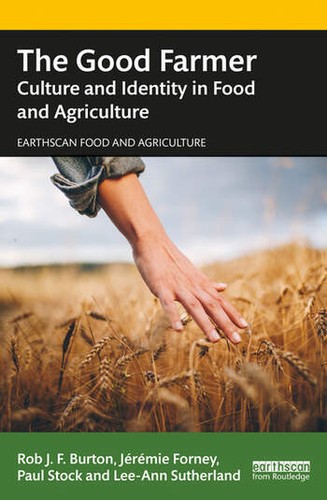Paperback, 208 pages
English language
Published Sept. 14, 2020 by Routledge.
Culture and Identity in Food and Agriculture Earthscan food and agriculture

Paperback, 208 pages
English language
Published Sept. 14, 2020 by Routledge.
Developed by leading authors in the field, this book offers a cohesive and definitive theorisation of the concept of the 'good farmer', integrating historical analysis, critique of contemporary applications of good farming concepts, and new case studies, providing a springboard for future research.
The concept of the good farmer has emerged in recent years as part of a move away from attitude and economic-based understandings of farm decision-making towards a deeper understanding of culture and symbolism in agriculture. The Good Farmer shows why agricultural production is socially and culturally, as well as economically, important. It explores the history of the concept and its position in contemporary theory, as well as its use and meaning in a variety of different contexts, including landscape, environment, gender, society, and as a tool for resistance. By exploring the idea of the good farmer, it reveals the often-unforeseen assumptions implicit in food and agricultural policy …
Developed by leading authors in the field, this book offers a cohesive and definitive theorisation of the concept of the 'good farmer', integrating historical analysis, critique of contemporary applications of good farming concepts, and new case studies, providing a springboard for future research.
The concept of the good farmer has emerged in recent years as part of a move away from attitude and economic-based understandings of farm decision-making towards a deeper understanding of culture and symbolism in agriculture. The Good Farmer shows why agricultural production is socially and culturally, as well as economically, important. It explores the history of the concept and its position in contemporary theory, as well as its use and meaning in a variety of different contexts, including landscape, environment, gender, society, and as a tool for resistance. By exploring the idea of the good farmer, it reveals the often-unforeseen assumptions implicit in food and agricultural policy that draw on culture, identity, and presumed notions of what is 'good'. The book concludes by considering the potential of the good farmer concept for addressing future, emerging issues in agriculture.
This book will be of interest to students and scholars of food and agriculture and rural development, as well as professionals and policymakers involved in the food and agricultural industry.